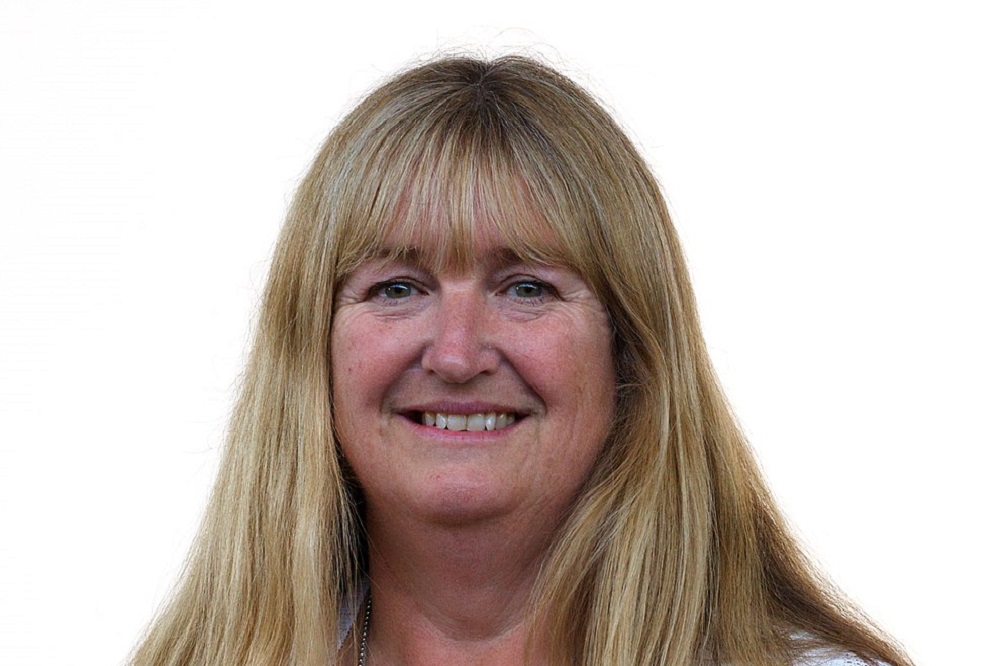Today’s Senedd Roundup: Government considers practicalities of legal right to housing

Owen Donovan, Senedd Home
Housing and local government questions.
Shadow Housing Minister, David Melding AM (Con, South Wales Central), praised a recent joint report by Tai Pawb, Chartered Institute of Housing and Shelter Cymru, which called for a right to housing to be enshrined in Welsh law, as well as setting out a practical road map to get there. Did the Welsh Government agree?
2019 marks the 100th anniversary of council housing as we currently know it and it David Melding thought it would be fitting to try and enshrine a right to housing into law this year.
mid-content-banner]
Minister for Local Government & Housing, Julie James (Lab, Swansea West) “absolutely” agreed that the right to housing should be enshrined in law. However, there were a number of practical issues to overcome:
“….it’s not only important to make sure that people have housing as a fundamental human right, front and centre, but, actually, we’re in a position to deliver it. So if, for example, an individual has a right to enforce that, we have to have an adequate housing supply, in order for them to be able to have the houses to get into….So, whilst I absolutely fundamentally accept the purpose of the report, and concur with it, we do have a range of practical issues to consider as well.”
– Local Government & Housing Minister, Julie James
Councils “failing” to properly consider the Future Generations Act
Dr Dai Lloyd AM (Plaid, South Wales West) said that despite Welsh Government demands that councils fully consider the Future Generations Act, there were plenty of examples of councils not doing so properly; Swansea Council by seeking to sell off foreshore land, but also in Bridgend:
“Might I just point to an example in my own region in Bridgend? Recently, there has been a consultation on removing bus services (subsidies). A report to cabinet recommending the cuts quite simply failed to do either an equalities assessment or an assessment of the future generations. They said they would do both after the consultation before a final sign-off on the decision. In other words, after a decision had been made.”
– Dr Dai Lloyd AM
The Minister couldn’t comment on particular cases, though pledged to bring the matter up with Bridgend Council’s leader. She was well aware of proposals in Swansea as well, which were out for consultation – but it was far too early to say one way or another that they were failing to comply with the Act.
Environmental considerations in planning
Llyr Gruffydd AM (Plaid, North Wales) referred back to the inspector’s report on the Newport bypass. He said that while environmental issues were supposed to have equal weight to socio-economic considerations, it was clear there was an inconsistency given that the First Minister put more weight on the environment than the inspector. How many decisions would’ve been different under the same circumstances?
Mandy Jones AM (BXP, North Wales) also asked for proper consideration for the protection of urban and rural wildlife.
The Minister didn’t think these were particularly fair points. There will always be an element of subjectivity when considering decisions like these. If people want to have a say in the planning rules then they should take part in local development plans – so she welcomed views on how to better engage the public in the planning process.

Minister quizzed on what the “climate emergency” means in practice
Here’s a summary of this afternoon’s environment questions.
The climate emergency and policy
With a supposed £1.5billion freed up by the scrapping of the Newport bypass, Llyr Gruffydd AM (Plaid, North Wales) wondered what would happen next. Had any of the money been earmarked for environmental improvements?
Energy, Environment & Rural Affairs Minister, Lesley Griffiths (Lab, Wrexham), told him discussions were ongoing. Some or most of the money would inevitably go on alternatives to the bypass.
Llyr Gruffydd then asked what impact the climate emergency declaration would have on the remit of Welsh Government-sponsored bodies like Natural Resources Wales (NRW) and Hybu Cig Cymru (HCC)?
The answer: it was being looked at.
“I meet with NRW on a monthly basis, so we’ve certainly discussed the climate emergency and what they’re looking at doing. I know, for instance, that NRW are looking at what extra land they have for planting trees. I think they’ve got some land that they’ve banked, which can be reforested, and we need to look at….money for that. HCC I’m due to meet in the near future and, again, it will be on the agenda.”
– Energy, Environment & Rural Affairs Minister, Lesley Griffiths
Planning for the climate emergency
Shadow Environment Minister, Andrew RT Davies AM (Con, South Wales Central), went through recent Cabinet minutes and found that the Minister’s decision to declare a “climate emergency” was tagged on to the end under “any other business”. This implies there hasn’t been much planning or discussion within the government on what a climate emergency actually meant in practice.
“We’ve heard since those declarations that Government….is having to deal will all these issues around their policy portfolio, but that minute doesn’t clearly indicate to me that there has been that discussion and so….you’re telling us there has. For example, can you tell me how many jobs will be lost in the Welsh economy because of the transition and how many jobs might be created in the green revolution that we hope to see?”
– Shadow Environment Minister, Andrew RT Davies AM
The Minister said the Cabinet minutes don’t properly reflect the discussions that went on before the declaration. She couldn’t give a figure regarding the jobs question, but there were definite opportunities within low-carbon industries to create jobs. The Chief Economist has offered advice on that regard and the Minister will check as to whether she can make that available to AMs.
Promoting tourism on NRW land
David Rees AM (Lab, Aberavon) said the land around many parts of Wales previously home to mining – particularly the Afan Valley is owned by the Welsh Government and managed by NRW. It was therefore important that no unnecessary barriers are placed to prevent the development of tourism, as mountain biking has been used to some success in the Afan Valley.
Suzy Davies AM (Con, South Wales West) added that there were opportunities to involve schoolchildren in replanting exercises – both in terms of land management and teaching understanding on how forestry is involved in tackling climate change. Caroline Jones AM (BXP, South Wales West) made a similar point about biodiversity.
The Minister understood the importance of working with NRW, particularly in the context of a proposed tourist resort development near Croeserw. She also accepted that tree planting efforts were too slow – though NRW were already working with schools.

Photo by Erdmann-Crew from Pixabay
Temporary 50mph limits to be made permanent to help combat air pollution
Yesterday, the Energy, Environment & Rural Affairs Minister, Lesley Griffiths (Lab, Wrexham), updated AMs on measures the Welsh Government were taking to address air pollution.
The most serious environmental health risk we face
The Minister reminded AMs that air pollution has a much-highlighted impact on children and people with underlying health conditions.
Back in January, the Minister said temporary 50mph limits (at M4 Port Talbot, A470 Pontypridd, M4 Newport, A483 Wrexham and A494 Deeside) would be kept for as long as they’re deemed necessary. Yesterday, she confirmed they’ll be made permanent.
“I am pleased to announce that 50mph speed limits will be in place on a permanent basis across all five sites by the middle of July. We will be enhancing communications around the reason for the speed restrictions and providing new permanent traffic sign layouts at all sites so that the public is aware of the importance of these measures.”
– Energy, Environment & Rural Affairs Minister, Lesley Griffiths
The Minister added that she’s received proposals from Cardiff and Caerphilly councils on measures to meet nitrogen dioxide limits. The Welsh Government also recently announced a £30million investment in active travel and “has an ambition” for all buses and taxis to be low- emission by 2028. A Clean Air Act is also on the table.
Shadow Environment Minister, Andrew RT Davies AM (Con, South Wales Central), said this was an area Wales had to make serious progress in due to the estimated 2,000 excess deaths each year caused by air pollution. He somewhat sarcastically suggested that driving at 50mph would be “a dream” for many people on the M4 due to congestion.
He suggested the Welsh Government should consider using World Health Organization standards for air pollution (as opposed to EU standards) when developing a Clean Air Act; the Minister agreed to look at it as WHO standards were 50% more stringent than the EU.
Action driven by citizens
“….the reason it’s been driven so hard over the last decade is because of groups like ClientEarth and others, who have been able to bring actions against UK Government….Can we have that guarantee, going forward…..that citizens or citizens’ organisations can hold governments to account to ensure…. take them to court, sue them and force their hand to deal with this epidemic, now, that is right across the UK?”
– Huw Irranca-Davies AM (Lab, Ogmore)
Llyr Gruffydd AM (Plaid, North Wales) was disappointed that this was largely a repetition of previous announcements, with vague timetables and no new detail on the proposed Clean Air Act. The Minister was equally disappointed by Llyr’s response – he had to accept there were constraints on the amount of legislation Ministers can table each year.
Mike Hedges AM (Lab, Swansea East) asked for the Minister to consider banning new waste incinerators and banning people from burning waste in gardens. Vikki Howells AM (Lab, Cynon Valley) argued that people might be more supportive of 50mph limits if they knew why they were there.
Not for the first time, John Griffiths AM (Lab, Newport East) made the case for 20mph limits to be introduced in urban areas to encourage active travel and also for someone to take the lead at a national level to encourage more walking and cycling to school; it can’t be left to individual schools or local authorities – later echoed by Jenny Rathbone AM (Lab, Cardiff Central). He also made the case for taxis to convert to LPG – a move he said would repay itself over a few years.

Regional Working To Be Pursued As An Alternative To Council Mergers
Local Government & Housing Minister, Julie James (Lab, Swansea West), said significant progress had been made in developing proposals to reform local government after council mergers were rejected a few years ago – despite the recommendations of the Williams Commission.
A working group decided regional working was now the way forward. A new Local Government Bill – set to be introduced in October 2019 – will set out a “consistent, simplified and straightforward” method for regional working. In effect, joint committees would be established as entities in their own right.
“Local authorities will be able to request the establishment of such a (regional) body where they wish to work together on the basis of shared interests and mutual benefit. This can be in relation to any service local authorities believe can be delivered more efficiently and effectively this way. I also propose that Welsh Ministers will be able to require local authority functions to be delivered regionally for certain service areas.”
– Local Government & Housing Minister, Julie James
Particular areas picked out by the Minister for mandatory regional working include transport, strategic planning and economic development. The benefits could include better use of land and pooling of human resources and budgets.
Shadow Communities Minister, Mark Isherwood AM (Con, North Wales), praised the co-operative spirit shown by the government and the working group. He’s been told by people in local government that while they don’t have any reason to be concerned about regional working, there was a sense of frustration at constant tinkering by the Welsh Government.
Dr Dai Lloyd AM (Plaid, South Wales West) said that since the last major reorganisation of local government in 1996, the question of “who should do what and at what level of government” has persistently remained. He stressed the importance of democratic control – particularly if some aspects of planning were done regionally – though he saw potential in joint working allowing local authorities to set up not-for-profits service providers (i.e. for bus services).
Recognising the contribution of local government
Mike Hedges AM (Lab, Swansea East) said this was an opportunity to properly appreciate the work of local government during uncertain times, but he called for regional working to be fixed and not involve different councils for different purposes.
“The great weakness in Swansea is that they don’t know who’s going to turn up for the next meeting, because sometimes it was Ceredigion, sometimes it was Ceredigion and Powys, sometimes they are with Bridgend. It does create difficulty in collaborative working when you’re collaborating with different people depending on what service you’re talking about.”
– Mike Hedges AM
Caroline Jones AM (BXP, South Wales West) suggested that this was a rehash of the old/pre-1996 county council system and also wanted a clear timescale for when the regional bodies would be introduced.
The Minister rejected any comparison with the old county councils as there are no plans to reduce the number of local authorities. She repeated that she hopes a Bill will be introduced in October and the first debates will be informed by a new report from the working group on how regional bodies would function.
Devolving some benefits “would be a better fit” with current devolved responsibilities
Support our Nation today
For the price of a cup of coffee a month you can help us create an independent, not-for-profit, national news service for the people of Wales, by the people of Wales.




